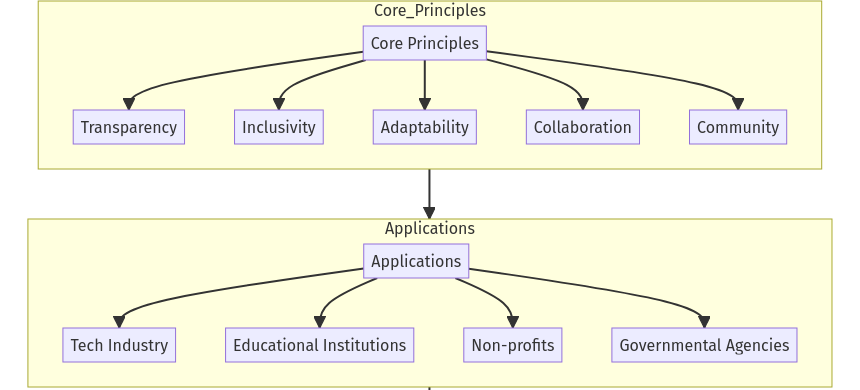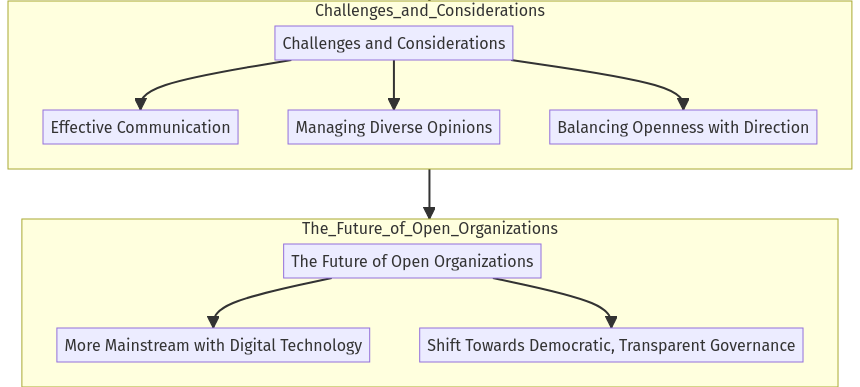Exploring the Principles and Impact of Decentralized Governance
Open organizations are entities characterized by their transparent, inclusive, and collaborative approach to governance and operations. Unlike traditional organizations that often operate with hierarchical structures and closed-door policies, open organizations embrace a model where decision-making processes are decentralized, and information flows freely among all members. This concept is rooted in the principles of open-source culture, where openness, adaptability, and community participation are key values.
Core Principles of Open Organizations
- Transparency: All members have access to information related to the organization's operations, decisions, and processes. This openness fosters trust and accountability within the organization.
- Inclusivity: Open organizations encourage participation and contributions from all members, regardless of their role or status within the organization. This inclusivity enhances diversity of thought and innovation.
- Adaptability: Being open to change and responsive to the community's needs are hallmarks of open organizations. This flexibility allows them to evolve and remain relevant in a rapidly changing environment.
- Collaboration: The culture of open organizations is heavily centered around collective effort and shared goals. Collaboration across different levels of the organization enhances creativity and problem-solving.
- Community: Open organizations view their members as part of a broader community, emphasizing the importance of building relationships and fostering a sense of belonging among participants.
Applications of Open Organizations
Open organizations are prevalent in the tech industry, especially among open-source software projects, but the model is gaining traction in other sectors as well. Educational institutions, non-profits, and even governmental agencies are beginning to adopt open organizational structures to improve efficiency, innovation, and stakeholder engagement.

Challenges and Considerations
While the benefits of open organizations are significant, there are challenges to implementing and sustaining this model. Ensuring effective communication and managing a diverse array of opinions and interests can be complex. Additionally, open organizations must find a balance between openness and the need for some level of direction and control to achieve their objectives. Internal governance and external regulation remain key questions for organizations as they begin to decentralize.

The Future of Open Organizations
As digital technology continues to facilitate greater connectivity and collaboration, the concept of open organizations is likely to become more mainstream. The growing appreciation for transparency, community-driven development, and flexible governance models suggests that open organizations could play a significant role in shaping the future of work and organizational design.
Open organizations represent a shift towards more democratic, transparent, and participatory forms of governance and operation. By embracing the principles of openness, inclusivity, and collaboration, these entities are pioneering new ways of organizing and achieving collective goals, potentially leading to more innovative, adaptable, and resilient organizations.
Join the Colony Community
Stay connected and dive deeper into the world of on-chain organizations with Colony. For the latest updates, insights, and discussions, follow us on our community channels:
- Website: Visit our website
- Twitter: Follow us on Twitter
- Discord: Join our Discord community
- Github: Find Colony on Github
Together, let's build the future of decentralized collaboration.